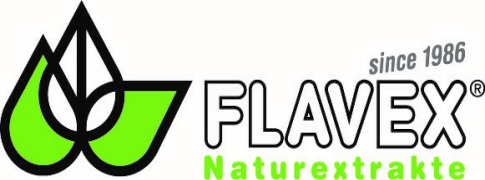News
Organic foods on the rise among young Europeans
7 Oct 2019Young people are now among the biggest consumers of organic foods and beverages in Europe – and manufacturers may need to rethink their organic brands if they want to appeal to the next generation.
According to market research organisation Mintel, about three-quarters of shoppers in five European markets buy organic food, and about a third do so at least once a week. But while organic food has long reassured consumers that they are buying chemical-free, safe and clean label products, it says the reasons for buying organic are evolving. In a recent survey, Mintel found organic shoppers aged 16-24 were more concerned with ethical and environmental concerns than those in other age groups, and often were looking for more than organic certification alone.

The promise of healthy, ethical and environmentally friendly foods is still very important for younger generations, but increasingly, younger generations are seeking assurances of broader sustainability and integrity in the supply chain. This may mean that organic is not the primary marketing message, presenting both a challenge and an opportunity for food manufacturers. Mintel suggests that brands need to embed their organic claims within wider messages of sustainability, and build brand identity around a genuine set of ethical principles.
For food companies, the organic sector holds obvious appeal, as worldwide sales of organic foods and beverages nearly quadrupled from 2002 to 2016, according to market researcher Ecovia. Mintel’s Global New Products Database shows the annual number of organic new product launches has increased 147% since 2010.
In response to growing market demand, food ingredient companies have been increasing their ranges of organic options. Although basic foods like fruits, vegetables, grains, meat, eggs and dairy are the biggest categories for organic foods, manufacturers of specialty ingredients have started to ramp up production of organically sourced products too. Naturex, for example, says there is particularly high demand for colours and extracts from organic carrot, red beet, kale, broccoli, berries and acerola; and demand for organic specialty oils also is growing, as food manufacturers increasingly are looking for options that allow them to differentiate their organic products by seeking out organic sourcing for all of their ingredients. Dutch supplier De Wit, for example, says about half of its hemp seed oil and pumpkinseed oil is organic.
Although manufacturers in Europe and the United States can use some organic claims on-pack even if their products contain small quantities of non-organic ingredients, rising interest in the integrity of foods and food production may spur more brands to chase 100% organic claims. It seems likely that such a whole-product approach may be exactly the kind of tactic that appeals to the upcoming generation of health-conscious and environmentally conscious young consumers.
Related news

Harmful meat misinformation threatens consumer health
2 Jul 2025
Misinformation from social media “superspreaders” poses a risk to global consumer health, affecting confidence and trust in the industry, findings reveal.
Read more
Consumers join coalition in call for nitrites ban
26 Jun 2025
European consumers overwhelmingly support a ban on nitrites, according to a coalition of world-leading scientists and politicians who warn that continued inaction is putting public health at risk.
Read more
Compostable packaging claims rubbished by regulator
9 Jun 2025
Compostable coffee capsule ads from brands including Dualit and Lavazza Coffee have been banned after the UK’s advertising watchdog deemed them to be "misleading".
Read more
The winners of Vitafoods Europe Startup Challenge 2025 revealed
29 May 2025
Four startups – Yomio Drops, PFx Biotech, Revobiom, and Favamole – took top prizes at this year’s Vitafoods Europe Startup Challenge awards.
Read more
Plant-based proteins ‘have higher levels of chemical contaminants’ due to processing
21 May 2025
Plant-based proteins have higher levels of chemical contaminants than their animal-based counterparts, but there is no suggestion of “immediate risk” to consumers, say scientists.
Read more
How will US ban on artificial dyes impact global F&B brands?
20 May 2025
As the US prepares to ban synthetic colourings from the food and beverage (F&B) industry, what will the impact be for brands in Europe and beyond?
Read more
Nestlé improves nutrition reporting as pressure grows on other food and beverage companies
16 May 2025
Nestlé has urged other major food manufacturing businesses to improve their reporting on the nutritional value of their products.
Read more
US artificial dye phase-out plan drives growth for natural alternatives
13 May 2025
With the US phasing out artificial dyes, brands are exploring aquatic environments, fruits, and food waste to replicate colour in formulations.
Read more
How can brands navigate US tariffs on sugar alternatives?
7 May 2025
US tariffs on monk fruit and stevia may push food and beverage brands to rethink their sugar reduction strategies.
Read more
Apollo Health leads charge in growth of brain food delivery
5 May 2025
US-based functional player Apollo Health has launched a home delivery service for its KetoFLEX 12/3 brain health meal plan, a move that points to further expansion in the small but fast-growing food-as-medicine subscription market.
Read more

